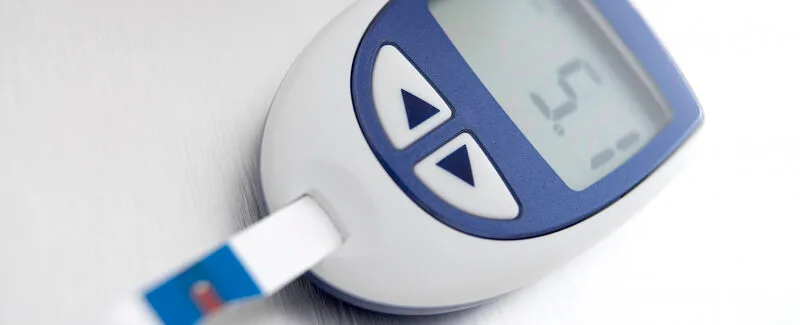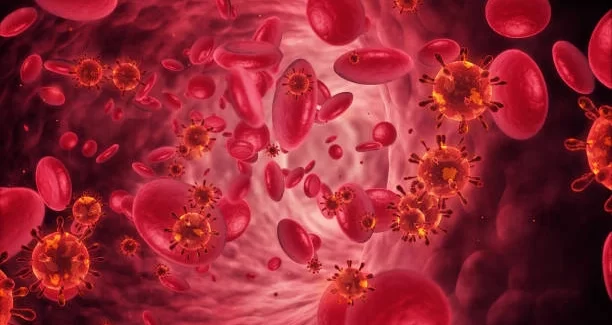What are Diabetes Overview, Symptoms, Treatment, Precautions

Posted Date: February 7th, 2023
All You Need to Know About disease Diabetes
Diabetes is a persistent health issue that impacts the body’s handling of glucose, also known as blood sugar. Glucose is an important source of energy for the body, but in order for it to be used effectively, it must be regulated by the hormone insulin. In people with diabetes, the body either does not produce enough insulin, or is unable to use insulin effectively, leading to high levels of glucose in the blood.
See also
What are the different types of diabetes?
There are 2(two) main types of diabetes: type 1 and type 2.
Type 1 diabetes is an autoimmune disease where the body’s immune system attacks and destroys the cells that produce insulin, called beta cells. This type of diabetes usually develops in childhood or adolescence and requires daily insulin injections or use of an insulin pump.
Type 2 diabetes, on the other hand, is the most common type of diabetes and occurs when the body becomes resistant to insulin and does not produce enough insulin to regulate blood sugar levels. This type of diabetes is often associated with a sedentary lifestyle, unhealthy diet and being overweight or obese.
Both types of diabetes can lead to serious health complications, including heart disease, stroke, nerve damage, kidney disease and blindness. It is therefore important for people with diabetes to closely manage their blood sugar levels and make lifestyle changes to reduce the risk of these complications.
Treatment for diabetes typically involves a combination of medication, lifestyle changes and regular monitoring of blood sugar levels. Making healthy food choices, being physically active, quitting smoking and managing stress can also help to manage diabetes and reduce the risk of complications.
What are Diabetes symptoms
The symptoms/sign of diabetes can different from person to person depending on the type of diabetes and the complication or severity of the disease. Some common symptoms of diabetes include:
-
Excessive thirst
-
Increased hunger
-
Frequent urination
-
Dry mouth and skin
-
Blurred vision
-
Slow-healing cuts or bruises
-
Fatigue and weakness
-
Unexpected weight loss
In some cases, people with type 2 diabetes may not experience any symptoms in the early stages of the disease. It is therefore important to have regular check-ups and blood tests to monitor blood sugar levels and detect diabetes early.
If you experience any of these symptoms, it is important to speak to your doctor as soon as possible for a diagnosis and appropriate treatment. Early diagnosis and treatment can help prevent the development of serious health complications associated with diabetes.
When need to see a doctor
You should see a doctor if you have any of the following symptoms of diabetes or if you are at increased risk of developing the disease:
-
Are overweight or obese
-
Have a family history of diabetes
-
Are over the age of 45
-
Having high blood pressure (BP) in body or having high cholesterol levels
-
Have a previous history of heart disease or heart stroke
-
Have a history of previous gestational diabetes means diabetes during pregnancy)
-
Are of African American, Hispanic/Latino, American Indian, or Asian American/Pacific Islander descent, as these populations are at increased risk of developing diabetes.
Early detection and treatment of diabetes can help prevent the development of serious health complications associated with the disease. Your doctor will be able to advise you on the best course of action and can refer you to a specialist if necessary.
Causes of diabetes
The exact causes of diabetes are not fully understood, but a combination of genetic and environmental factors are thought to play a role. The 2 (two) main types of diabetes, type 1 diabetes and type 2 diabetes, have different causes:
Type 1 Diabetes: This type of diabetes is thought to be an autoimmune disease where the body’s immune system attacks and destroys the cells that produce insulin. The exact cause of this process is not known, but a combination of genetic and environmental factors are thought to play a role.
Type 2 Diabetes: This type of diabetes occurs when the body becomes resistant to insulin and does not produce enough insulin to regulate blood sugar levels. The following factors may contribute to the development of type 2 diabetes:
-
Overweight or obesity
-
Physical inactivity
-
Poor diet
-
Family history of diabetes
-
Age (over 45 years old)
-
High blood pressure
-
High cholesterol levels
-
A history of gestational diabetes
-
Certain ethnic backgrounds (African American, Hispanic/Latino, American Indian, or Asian American/Pacific Islander)
It is important to note that having one or more of these risk factors does not guarantee that you will develop diabetes, but it does increase your likelihood of developing the disease. Making lifestyle changes, such as eating a healthy diet, being physically active, quitting smoking and managing stress, can help reduce the risk of developing diabetes.
How insulin works in diabetes
The pancreas produces insulin, a hormone that controls the level of glucose in the blood. In people without diabetes, insulin helps to keep the blood sugar level within a normal range. In people with diabetes, the body is unable to produce enough insulin or cannot effectively use the insulin it produces, leading to high blood sugar levels.
In healthy individuals, when you eat, the digestive system breaks down food into glucose and other nutrients. An increase in blood sugar level occurs as glucose enters the bloodstream. In response, the pancreas releases insulin into the bloodstream, which helps the body’s cells absorb the glucose from the bloodstream and use it for energy. At the same time, insulin signals the liver to stop producing glucose and to store any excess glucose as glycogen.
In people with diabetes, the body is unable to produce enough insulin or cannot effectively use the insulin it produces, causing the blood sugar level to rise. This can lead to the development of serious health complications over time if left untreated. Treatment for diabetes typically involves taking insulin or other medications to regulate blood sugar levels, as well as making lifestyle changes, such as eating a healthy diet and being physically active.
Who gets diabetes?
Anyone can develop diabetes, but some people are at increased risk. The following factors increase a person’s likelihood of developing diabetes:
-
Age: The risk of developing diabetes increases as you get older, especially after the age of 45.
-
Family history: Having a parent or sibling with diabetes increases your risk of developing the disease.
-
Ethnic background: Some ethnic groups, including African Americans, Hispanic/Latinos, American Indians and Asian Americans/Pacific Islanders, have a higher risk of developing diabetes.
-
Overweight or obesity: Excess weight, especially around the waist, increases the risk of developing type 2 diabetes.
-
Physical inactivity: People who are physically inactive are at increased risk of developing diabetes.
-
Poor diet: A diet high in added sugars, saturated fat and trans fat increases the risk of developing type 2 diabetes.
-
High blood pressure: Having high blood pressure increases the risk of developing diabetes and other health problems.
-
High cholesterol levels: High levels of bad cholesterol (LDL) increase the risk of developing diabetes and other health problems.
-
History of gestational diabetes: Women who have had gestational diabetes during pregnancy have an increased risk of developing type 2 diabetes later in life.
It is important to note that having one or more of these risk factors does not guarantee that you will develop diabetes, but it does increase your likelihood of developing the disease. Making lifestyle changes, such as eating a healthy diet, being physically active, quitting smoking and managing stress, can help reduce the risk of developing diabetes.
Diabetes Prevention
There are several steps you can take to prevent or delay the onset of diabetes, including:
-
Maintaining a healthy weight: Losing just 5-10% of your body weight can significantly lower your risk of developing diabetes.
-
Being physically active: It needs to be physically active and strong for at least 30 minutes a day, five(5) days a week. This can include walking, biking, swimming, or any other physical activity that you enjoy.
-
Eating a healthy diet: Choose foods that are low in added sugars and unhealthy fats and high in fiber, such as fruits, vegetables, whole grains and lean proteins.
-
Avoiding tobacco: Smoking increases your risk of developing diabetes and other health problems.
-
Managing stress: Chronic stress can increase your risk of developing diabetes and other health problems. Find healthy ways to manage stress, such as exercising, meditating, or talking to a counselor.
-
Monitoring blood pressure and cholesterol levels: High blood pressure and high cholesterol levels increase the risk of developing diabetes and other health problems. If you have high blood pressure or high cholesterol, talk to your doctor about ways to manage these conditions.
-
Getting regular check-ups: Regular check-ups with your doctor can help you stay on track with your health goals and prevent or manage diabetes and other health problems.
Making lifestyle changes and taking these steps can help prevent or delay the onset of diabetes and improve your overall health. However, it is important to talk to your doctor about the best strategies for preventing diabetes, as different approaches may be needed for different people based on individual health needs and risk factors.
See also
Diabetes treatment
The goal of diabetes treatment is to keep blood sugar levels within a target range, manage symptoms and prevent or delay complications. The following are common treatment options for diabetes:
-
Medications: Depending on the type of diabetes, your doctor may prescribe oral medications, insulin, or other treatments to help manage blood sugar levels.
-
Healthy eating: Eating a healthy, balanced diet that is low in added sugars and unhealthy fats and high in fiber is important for managing diabetes. Your doctor or a registered dietitian can help you develop a meal plan that is right for you.
-
Physical activity: Regular physical activity can help to create and improve insulin sensitivity, lower blood sugar levels, & reduce the risk of complications.
-
Monitoring blood sugar levels: Regular monitoring of blood sugar levels is important for managing diabetes and preventing complications. Your doctor will advise you on how often to check your blood sugar and what your target range should be.
-
Managing stress: Chronic stress can affect blood sugar levels and increase the risk of complications. Find healthy ways to manage stress, such as exercising, meditating, or talking to a counselor.
-
Quitting tobacco: Smoking increases the risk of complications in people with diabetes. If you smoke, stop smoking is one of the best way for your health.
-
Regular check-ups: Regular check-ups with your doctor can help you stay on track with your health goals and prevent or manage complications.
The specific treatment plan for diabetes will depend on the type of diabetes, the severity of the condition and the individual’s health needs and preferences. It is important to work closely with your doctor and diabetes care team to develop a treatment plan that is right for you.
Related Posts
Dr. Emily Carter is a seasoned health writer and wellness advocate at Healths News Today. With over a decade of experience in the healthcare industry, she specializes in translating complex medical information into easy-to-understand content that empowers readers to make informed decisions about their health.





